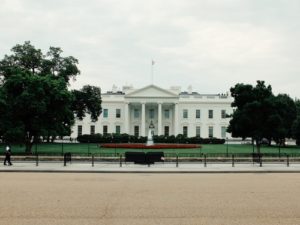
It’s funny how you can always remember your best teachers. At the age of about 15 one of mine told me that if I can’t recall what happened at a summit or what was agreed in a treaty, where it happened is usually a good indication of who held sway. Applying this rule of thumb to COP 29, held in Baku, probably tells you all you need to know about the prospect of a meaningful climate agreement. Azerbaijan is far from a world leader in transition technology.
There are plenty more technical reasons for scepticism. As a result of various different sick notes, the leaders of the US, China, France, Germany and India are not attending. By GDP, that’s five of the top seven nations. Beyond this, it feels likely that the United States will re-withdraw from the Paris Agreement following Donald Trump’s election. The silver lining is that an exit would not be instantaneous, but it could still be faster than the three years it took to exit under his last presidency. But I still think the impression that the US is not going to prioritise the environment is desperately sad news. And that’s not just because I am someone who values nature and biodiversity.
In the longer-term, changes in our environment bring severe financial risks. Climate change-related risks continue to dominate the top of the World Economic Forum’s Risks Perception Surveys.
This brings a second, perhaps stronger, silver lining. The US produced 6.74bn tons of CO2 equivalent in 2015, the last year of Obama’s tenure. That’s not the silver lining… It’s that by 2019, ie the last year pre-pandemic of Trump’s first presidency, total US emissions of harmful gases had fallen to 6.59bn tons. So even if it appears the US government doesn’t care much for the environment, many in the private sector do.
But what other impacts will Trump’s regime have? Before the election we wrote about the potential consequences of tariffs. Many new tariffs are expected, and simple economic theory says these could impede growth. While this protectionist stance has served to boost the value of US smaller companies, for most of the rest of the world, the US putting up trade barriers is a potential problem.
So, what could this mean for the UK? We have a close trading relationship with the US and a significant manufacturing sector. However, hopefully the reality is also not as problematic as it sounds.
The US government’s website has data up to 2022 and the total value of goods exported by the UK to the US is listed as $64bn. That’s around 2% of the UK’s GDP. Of course, there are many moving parts here, so we should highlight that we are distilling it in this way solely to provide a useful indicator as to the scale of the issue.
When we compare this to others, such as the EU and China, the 2% of GDP starts to look rather light. In 2022, the EU exported $553bn of goods, or 3.4% of its GDP. China exported $536bn, which equates to 3% of its 2022 GDP. In addition, it’s worth bearing in mind that the US reported a small trade surplus with the UK, which compares favourably to deficits of $382.3bn with China and $202.5bn with the EU. In simple terms, they sell us more than we sell them.
The implication here is that, according to the Americans’ own data, extra tariffs on both sides would hurt the US more than the UK. This should carry far more weight than the wink and nod of any ‘special relationship’ and thus might help limit the scope of tariffs levied on the UK. That said, we remain mindful of the risks.
We focus on the UK here not just because it is our home market, but because we think valuation has moved to attractive levels. At the same time, the US market arguably looks more stretched, but has some outstanding growth companies and an ingrained culture of innovation. This has generated significant value over a range of presidential terms. Together, these geographies bring complementary characteristics, and can form the cornerstones of a diverse portfolio.
George Salmon – Senior Investment Analyst

FPC24212
All charts and data sourced from FactSet
Hawksmoor Investment Management Limited is authorised and regulated by the Financial Conduct Authority (www.fca.org.uk) with its registered office at 2nd Floor Stratus House, Emperor Way, Exeter Business Park, Exeter, Devon EX1 3QS. This document does not constitute an offer or invitation to any person in respect of the securities or funds described, nor should its content be interpreted as investment or tax advice for which you should consult your independent financial adviser and or accountant. The information and opinions it contains have been compiled or arrived at from sources believed to be reliable at the time and are given in good faith, but no representation is made as to their accuracy, completeness or correctness. The editorial content is the personal opinion of George Salmon, Senior Investment Analyst. Other opinions expressed in this document, whether in general or both on the performance of individual securities and in a wider economic context, represent the views of Hawksmoor at the time of preparation and may be subject to change. Past performance is not a guide to future performance. The value of an investment and any income from it can fall as well as rise as a result of market and currency fluctuations. You may not get back the amount you originally invested. Currency exchange rates may affect the value of investments.
